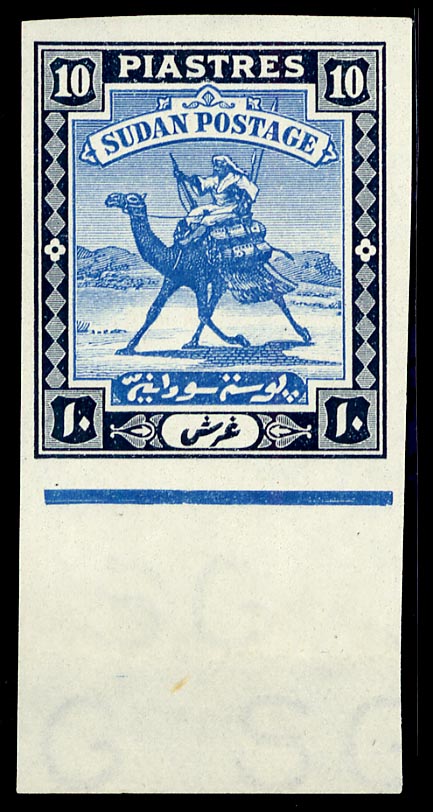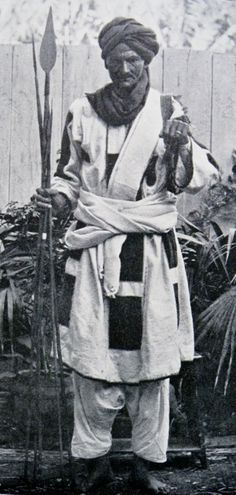|
Ali Al-Mirghani
Sir Sayyid Ali al-Mirghani (, 1873 – 21 February 1968) was a Sudanese religious and political leader. The late leader of the Khatmiyya, a Sufism, sufi order known in Egypt, Sudan and Eritrea. His family, settled in Kassala and Suakin, were hostile to the Mahdist State, Mahdist state and allied with the Egyptian government, and the Ansar–Khatmiyya rivalry, hostility between the Mahdist and Khatmiyya was fierce until the 1989 Sudanese coup d'état, 1989 coup d'état. Biography Early life Ali al-Mirghani was born on Massawa, Masawa in northern Sudan in 1873 into the Maraghna family, founded by his grandfather Mohammed Uthman al-Mirghani al-Khatim. His mother is from the and she died when he was 7. IN 1881, Ali moved with his father to Kassala, where he remained, studied primary school until the Battle of Kassala between the Ansar (Sudan), Ansar of the Mahdist state and the Italian troops. After the battle, he left it to Masawa and then Suakin with his father, where he ... [...More Info...] [...Related Items...] OR: [Wikipedia] [Google] [Baidu] [Amazon] |
Khatmiyya
The Khatmiyya is a Sufi order or brotherhood (tariqa) founded by Sayyid Mohammed Uthman al-Mirghani al-Khatim. The Khatmiyya is the largest Sufi order in Sudan, Eritrea and Ethiopia. It also has followers in Egypt, Chad, Saudi Arabia, Somalia, Uganda, Yemen and India. Al-Sayyid Al-Khatim was born in At-Ta'if in Hijaz and buried in Mecca in Tihamah Tihamah or Tihama ( ') is the Red Sea coastal plain of the Arabian Peninsula from the Gulf of Aqaba to the Bab el Mandeb. Etymology Tihāmat is the Proto-Semitic language's term for 'sea'. Tiamat (or Tehom, in masculine form) was the ancient M .... He started his travels at the age of twenty five after gaining his education through a number of prominent Islamic scholars in Mecca of his time among whom was Sayyid Ahmad Ibn Idris al-Fasi. References Sufi orders {{Sufism-stub ... [...More Info...] [...Related Items...] OR: [Wikipedia] [Google] [Baidu] [Amazon] |
Kassala
Kassala (, ) is the capital of the state of Kassala (state), Kassala in eastern Sudan. In 2003 its population was recorded to be 530,950. Built on the banks of the Mareb River, Gash River, it is a market city and is famous for its fruit gardens. Many of its inhabitants are from the Hadendoa, Hadendawa sub-tribe of the Beja people, Beja ethnic group. The city was formerly a railroad hub, however, as of 2006 there was no operational railway station in Kassala and much of the track leading to and from the city has been salvaged or fallen into disrepair. Kassala's location along the main Khartoum-Port Sudan highway makes it an important trade center. History In 1834, the Egyptian Army established Kassala as a garrison town following its conquest of Sudan in 1821. When the Mahdist Sudan, Mahdist state was established, the Egyptian garrison in Kassala found itself besieged by Mahdist forces. Under the terms of the 1884 Hewett Treaty, Abyssinian forces led by Ras Alula attempted to ... [...More Info...] [...Related Items...] OR: [Wikipedia] [Google] [Baidu] [Amazon] |
Battle Of Tokar
A battle is an occurrence of combat in warfare between opposing military units of any number or size. A war usually consists of multiple battles. In general, a battle is a military engagement that is well defined in duration, area, and force commitment. An engagement with only limited commitment between the forces and without decisive results is sometimes called a skirmish. The word "battle" can also be used infrequently to refer to an entire operational campaign, although this usage greatly diverges from its conventional or customary meaning. Generally, the word "battle" is used for such campaigns if referring to a protracted combat encounter in which either one or both of the combatants had the same methods, resources, and strategic objectives throughout the encounter. Some prominent examples of this would be the Battle of the Atlantic, Battle of Britain, and the Battle of France, all in World War II. Wars and military campaigns are guided by military strategy, whereas battl ... [...More Info...] [...Related Items...] OR: [Wikipedia] [Google] [Baidu] [Amazon] |
Sirdar
The rank of Sirdar () – a variant of Sardar – was assigned to the British Commander-in-Chief of the British-controlled Egyptian Army in the late 19th and early 20th centuries. The Sirdar resided at the Sirdaria, a three-block-long property in Zamalek which was also the home of British military intelligence in Egypt Egypt ( , ), officially the Arab Republic of Egypt, is a country spanning the Northeast Africa, northeast corner of Africa and Western Asia, southwest corner of Asia via the Sinai Peninsula. It is bordered by the Mediterranean Sea to northe .... List of officeholders References Military ranks of Egypt Military history of Egypt Military history of the British Empire {{Mil-rank-stub ... [...More Info...] [...Related Items...] OR: [Wikipedia] [Google] [Baidu] [Amazon] |
Anglo-Egyptian Sudan
Anglo-Egyptian Sudan ( ') was a condominium (international law), condominium of the United Kingdom and Kingdom of Egypt, Egypt between 1899 and 1956, corresponding mostly to the territory of present-day South Sudan and Sudan. Legally, sovereignty and administration were shared between both Egypt and the United Kingdom, but in practice the structure of the condominium ensured effective British control over Sudan, with Egypt having limited local power and influence. In the meantime, Egypt itself fell under increasing British influence. Following the Egyptian Revolution of 1952, Egypt pushed for an end to the condominium, and the independence of Sudan. By agreement between Egypt and the United Kingdom in 1953, Sudan was granted independence as the Republic of Sudan (1956–1969), Republic of the Sudan on 1 January 1956. In 2011, the south of Sudan itself became independent as the Republic of South Sudan. Muhammad Ali of Egypt, Muhammad Ali Muhammad Ali's rise to power, took contr ... [...More Info...] [...Related Items...] OR: [Wikipedia] [Google] [Baidu] [Amazon] |
Fiqh
''Fiqh'' (; ) is the term for Islamic jurisprudence.Fiqh Encyclopædia Britannica ''Fiqh'' is often described as the style of human understanding, research and practices of the sharia; that is, human understanding of the divine Islamic law as revealed in the Quran and the sunnah (the teachings and practices of the Islamic prophet Muhammad and his companions). Fiqh expands and develops Shariah through interpretation (''ijtihad'') of the Quran and ''Sunnah'' by Islamic jurists (''ulama'') and is implemented by the rulings (''fatwa'') of jurists on questions presented to them. Thus, whereas ''sharia'' is considered immutable and infallible by Muslims, ''fiqh'' is considered fallible and changeable. ''Fiqh'' deals with the observance of rituals, morals and social legislation in Islam as well as econo ... [...More Info...] [...Related Items...] OR: [Wikipedia] [Google] [Baidu] [Amazon] |
Ansar (Sudan)
The Ansar () are a Sufism, Sufi religious movement in the Sudan whose followers are disciples of Muhammad Ahmad (12 August 1844 – 22 June 1885), a Sudanese religious leader based on Aba Island who proclaimed himself Mahdi on 29 June 1881. His followers won a series of victories against the Khedivate of Egypt, Egyptians, culminating in the capture of Khartoum in January 1885. When Muhammed Ahmad died a few months later, his successor, Abdallahi ibn Muhammad, maintained the independence of the Mahdist State until 1898, when an Anglo-Egyptian force Anglo-Egyptian conquest of Sudan, re-conquered the area. The Mahdi's eldest surviving son, Abd al-Rahman al-Mahdi, was the religious and political leader of the Ansar throughout most of the colonial era of Anglo-Egyptian Sudan (1898–1955) and for a few years after the Sudan gained independence in January 1956. His descendants have led the movement since then. History Mahdiyah Muhammed Ahmad claimed to receive direct inspiration from Go ... [...More Info...] [...Related Items...] OR: [Wikipedia] [Google] [Baidu] [Amazon] |
Battle Of Kassala
The Battle of Kassala was fought on July 17, 1894, between Italian colonial troops and Mahdist Sudanese forces. Prelude Governor Oreste Baratieri sought to capture Kassala, to forestall Mahdist attacks on Eritrea. In July 1894, Baratieri saw his moment when the Atbarah River started to rise, and marched his small army of ''"''56 Italian officers, 41 NCOs and 2510 native soldiers led by 16 Bukbashis''"'' towards Kassala. Battle An account of the capture of Kassala was published in ''The New York Times'' on July 20, 1894: ''"'' Rome, July 19.- ...The attack upon the earthworks of the Mahdists was at once ordered and a fiercely contested battle ensued. The Mahdists fought desperately, but were finally driven from their position, leaving hundreds of dead and wounded in and about the intrenchments. Being hotly pursued, the Mahdists scattered under a continuous fire, and many of them in their efforts to escape plunged into the River Adbara, hoping to reach the other side. ...Hun ... [...More Info...] [...Related Items...] OR: [Wikipedia] [Google] [Baidu] [Amazon] |
Mohammed Uthman Al-Mirghani Al-Khatim
Mohammed Uthman al-Mirghani, known as Al-Khatim (, 1793 – 1852) was the founder of the Khatmiyya sufi tariqa, of Islam, that has a following in Egypt, Sudan, Eritrea, Somalia and Ethiopia. Family He was born into the Mirghani family in Mecca which was one of the most noble families that have descended from the Islamic prophet Muhammad. He is the son of Muhammad Abu Bakr who is the son of Abdallah al-Mahjoub who is the son of Ibrahim who is a descendant of the Islamic prophet Muhammad. The lineage of Muhammad Othman al-Mirghani was verified by Murtada al-Zubeidi and this was further verified by al-Jabarti in his book ''Taareekh al-Jabarti / al-Jabarti's History'' part two. # Muhammad # Ali ibn Abi Talib and Fatima Al Zahra # Imam Hussain # Ali Zayn al-Abidin, Imam Ali Zayn al-Abidin # Muhammad al Baqir, Imam Muhammad al Baqir # Ja'far al-Sadiq, Imam Ja'far al-Sâdiq # Musa al-Kadhim, Imam Musa al-Kazim # Ali al reza, Imam Ali al Reza # Muhammad al-Taqi, Imam Muhammad al Taq ... [...More Info...] [...Related Items...] OR: [Wikipedia] [Google] [Baidu] [Amazon] |
1989 Sudanese Coup D'état
1989 was a turning point in political history with the "Revolutions of 1989" which ended communism in Eastern Bloc of Europe, starting in Poland and Hungary, with experiments in power-sharing coming to a head with the opening of the Berlin Wall in November, the Velvet Revolution in Czechoslovakia and the overthrow of the communist dictatorship in Romania in December; the movement ended in December 1991 with the dissolution of the Soviet Union. Revolutions against communist governments in Eastern Europe mainly succeeded, but the year also saw the suppression by the Chinese government of the 1989 Tiananmen Square protests in Beijing. It was the year of the first Brazilian direct presidential election in 29 years, since the end of the military government in 1985 that ruled the country for more than twenty years, and marked the redemocratization process's final point. F. W. de Klerk was elected as State President of South Africa, and his regime gradually dismantled the apa ... [...More Info...] [...Related Items...] OR: [Wikipedia] [Google] [Baidu] [Amazon] |





